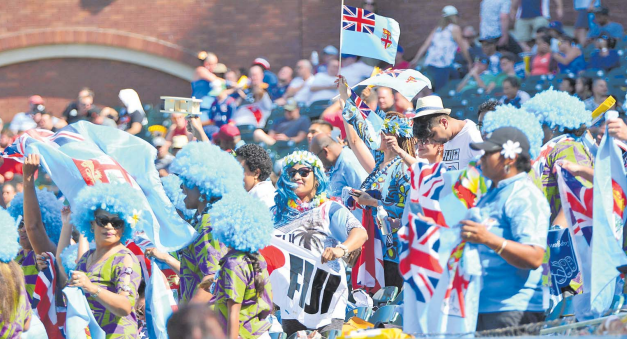FOR over 70-plus years, Indo-Fijian political leaders have fought, often passionately, for equality, recognition and the promise of one nation united by one people.
Their struggle for independence, and later for a common roll voting system where every citizen had one vote of equal value, was at the heart of this vision.
But in that fervent quest, and as noble as it may have been, did they perhaps miss something?
Did they overlook a deep, spiritual truth that lies at the heart of indigenous Fijian culture and identity — one that, if misunderstood or disregarded, can create confusion, tension and unnecessary upheaval between communities who now share this land?
The Indo-Fijian community has undoubtedly contributed in profound and meaningful ways to the development of our beloved Fiji.
They brought with them resilience, an unshakable work ethic and a fierce determination to build a better future for their children.
Through sweat and sacrifice in the sugarcane fields, education, commerce and professional arenas, they’ve carved out a place of pride in this nation.
But their political leadership’s unwavering push for a “common roll” — a system based on equality of vote rather than a communal system — raised uncomfortable questions among the indigenous population.
Why the urgency? What was the deeper agenda? Were these leaders fighting for fairness … or for dominance?
At the time, the demographic scales had tipped. Indo-Fijians had become a numerical majority. And that fact alone created tension and unease. In any democracy, numbers matter.
The fear among many indigenous Fijians was simple, yet deeply existential: that they could become strangers in their own land … politically powerless in the country of their ancestors.
It’s easy and dangerous to reduce these fears to mere racial resentment or political rivalry. That would be missing the point entirely.
Because beneath the politics lies something far more sacred.
To the indigenous Fijian, the vanua, the land, the people, the chief, the spiritual connection to their ancestors is not just an identity. It’s life itself.
The vanua is not symbolic. It’s literal. It binds them to their past, roots them in their present, and defines their future.
Their system of communal living of sharing, subsisting, caring for one another cannot be measured in economic terms.
It’s a spiritually aligned ecosystem that’s sustained them for generations. The indigenous community is not just protecting land. They’re protecting their mana — the very sacred essence of their spirituality, power, influence, authority and efficacy.
Perhaps what many Indo-Fijian leaders missed in their pursuit of legal equality and political reform was the need to first seek understanding and enlightenment of what “mana” means to the indigenous peoples.
Not just legal recognition, but cultural respect and understanding about their protocols, customs and traditions. Not just a seat at the table, but a willingness to listen, deeply and humbly, to the heartbeat of the people and the land they call home.
This isn’t to diminish the Indo-Fijian struggle. In fact, the opposite is true.
Indo-Fijians had no safety net. They had no village system to fall back on. For many, it was sink or swim.
So they swam — building their lives from the harsh realities of plantation servitude to becoming professionals, educators and entrepreneurs.
They built schools, sent their children to universities and pushed forward — not because they wanted to dominate, but because they had to survive.
But two truths can exist at once.
The Indo-Fijian pursuit of opportunity is valid. So too is the Indigenous Fijian’s fear of displacement. These aren’t contradictions — they’re parallel realities.
The real challenge, even today, is not political reform. It’s learning and earning mutual respect.
The kind that allows us to hear not just each other’s words, but each other’s pain, each other’s needs, feelings, thoughts, pride and purpose.
Until we learn to sit across the table and listen — truly listen — we will continue to miss the most important point of all.
That our shared future as a nation lies not only in assimilation, but in understanding and connecting the dots. Not in uniformity, but in unity through diversity. Not in who holds power, but in how we honour the sacred togetherness that underlies the spiritual roots of the indigenous community.
Because only when we recognise the vanua — not just as land, but as the soul of a people — can we begin to build a Fiji where no child, no community, no culture feels threatened, unheard, or unseen.
This is partly one of the main reasons why we’re sometimes still quietly referred to as, “vulagi”.
So let’s not wait for another 70-plus years before we truly understand the heartbeat of our indigenous brothers and sisters.
Let’s make sure that we truly understand what their “mana” means to them — and how it can become the bridge that unites us.
n COLIN DEOKI lives in Melbourne, Australia and is a regular contributor to this newspaper. The views expressed in this article are his and not necessarily of this newspaper.



